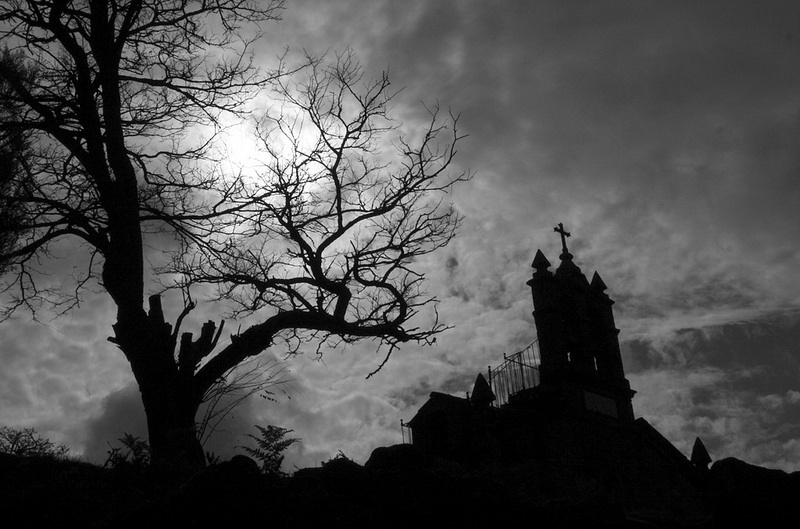Weeks 3 and 4: Frankenstein, chapters 5-16
Weeks 3 and 4: Frankenstein, chapters 5-16
Our second 90-minute make-up class was a success! I do believe we are caught up and where we need to be. Regular 60-minute class will resume this week at the scheduled time (11 am Eastern).
The Poetry of Percy (Shelley)

No discussion of the Romantic Period would be complete without a mention and quick study of Percy Bysshe Shelley. Not only was Percy Mary’s beloved husband (until he was tragically killed in a boating accident off the coast of Italy at the age of 30), Percy Shelley belonged to the second, younger generation of Romantic dudes and dudettes, along with Lord Byron. He was inspired by the ideals of the French Revolution, and he held some pretty revolutionary social and political views (boy, howdy!). He spent a lot of time hopping around Europe with his brilliant wife, Mary.
Percy was a bit of a controversial figure in his time, but then again, most of the Romantic poets were. That was the whole point, after all, of British Romanticism. If you think the poetry of the period is a bunch of highfalutin language written for the gentry, you would be mistaken. The Romantics wrote for the common man and in a conversational tone (and yes, this DOES say something about the devolution of the English language—just saying!).
Therefore, we took some time to read a passage from Percy Shelley’s poem, “Mont Blanc.” Mt. Blanc is mentioned numerous times in Frankenstein. Mt. Blanc is in the Swiss Alps, and both Mary and Percy spent time traveling in this area and being awed by:
“…broad vales between
Of frozen floods, unfathomable deeps,
Blue as the overhanging heaven, that spread
And wind among the accumulated steeps…”
–Mont Blanc by Percy Shelley (1816)
I “translated” the poem line-by-line, and we talked about its importance to the Shelley’s, and therefore to Mary’s novel, Frankenstein.
Another connection to Percy Shelley is in the full title to Mary’s novel. You will often see it thus: Frankenstein: Or the Modern Prometheus. Who is Prometheus and why did Mary think so much of him to include him in the title of her gothic tale? Human beings owe pretty much everything to Prometheus, the Titan god of foresight. Not only did he make the first men out of clay, he also gave us fire (FIRE features big in Frankenstein), which he snuck away from the altar of Zeus in a fennel stalk. Prometheus paid big time for this burglary—Zeus had him chained to a rock, where every day eagles would come and eat his liver. To make matters worse, each night his liver would grow back, so the eagles would have a tasty liver snack all ready for them the next day. According to some folks, Heracles came by years later, set Prometheus free, and got Zeus to pardon the hero of mankind.
Percy Shelley wrote the play, “Prometheus Unbound” around the same time Mary Shelley wrote Frankenstein. Prometheus (as imagined by Shelley anyway) is one of the great Romantic heroes. Prometheus endures his pain and torture very heroically. Prometheus is heroic not only because of his act of bringing fire to mankind; he’s heroic because he endures the (very, very terrible) consequences. He’s courageous, and rebellious, and stoic all at once. Just like a Romantic. 🙂 Victor Frankenstein is the modern incarnation of Prometheus because he suffers the consequences of seeking knowledge and power. So now you understand the full title of the novel!
The Paradise Lost Connection
If you’ve had enough of literary allusions in Frankenstein…too bad! There’s more to come, specifically, the huge reference to John Milton’s poem, Paradise Lost (1667). A quotation from the poem appears on the title page of some editions of the novel and of course, the creature finds a copy of Paradise Lost in the woods and since he has some new found literacy skills, he reads it…obviously! (Who wouldn’t read Paradise Lost with extra time on his hands?) Milton’s book-length poem is a retelling of the story of the fall of man from the Bible. When the creature confronts his creator (Victor) near the end of chapter 10 (in Frankenstein), he compares himself to Adam and the fallen angel, Satan. In chapters 11-16, the allusion to Paradise Lost is expanded upon, emphasizing the parallels between God and Victor and Satan and the creature. The tragedy of the creature is that he begins life as a perfectly lovely monster. He’s done nothing wrong and he has no beef with humanity—frankly, he just wants to be loved and accepted by someone—anyone! When he is fully rejected by all of mankind, he becomes a demon. Who can blame him? Actually, we had a good discussion about responsibility. Victor is certainly responsible for creating the monster (even though he loves to blame fate in the 1831 edition) and the creature is still responsible for offing innocent victims. Just because you’ve been jilted a million times AND you’re mad at your Creator doesn’t give you the right to become a murderer (especially of five-year old children and young brides).
For every chapter in Frankenstein, we summarize the main events, read and interpret two – four quotes from each week’s reading, and share our answers from the Glencoe Active Reading Charts and the weekly discussion questions. It is A LOT to get though and your students are moving through the material like champs. Thank you all for your dedication!
“Thrills and Chills:” What makes a gothic novel so…creepy?
(Preparing for Essay #2)

What makes a gothic novel creepy? Gothic novels emphasize horror, mystery, and the supernatural. For our final essay on the novel, students will discover and record the gothic features of Frankenstein that are evident in Chapters 1-10.
• How does Shelley establish an atmosphere of mystery?
• How does the action create a feeling of terror in the reader?
•What supernatural elements does she include?
•(Hint: think about setting, plot, and character.)
From Chapters 1-10, send me one example of mysterious atmosphere, one of action creating terror, and one of the supernatural. Include a citation from the text with your example and explain (freewrite) how the citation supports the gothic element. This work will create the foundation for your three body paragraphs.
Please let me know if you have any questions!